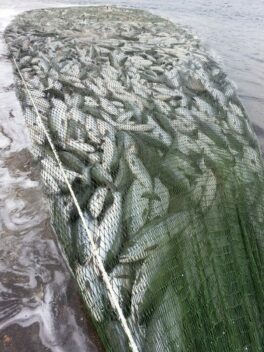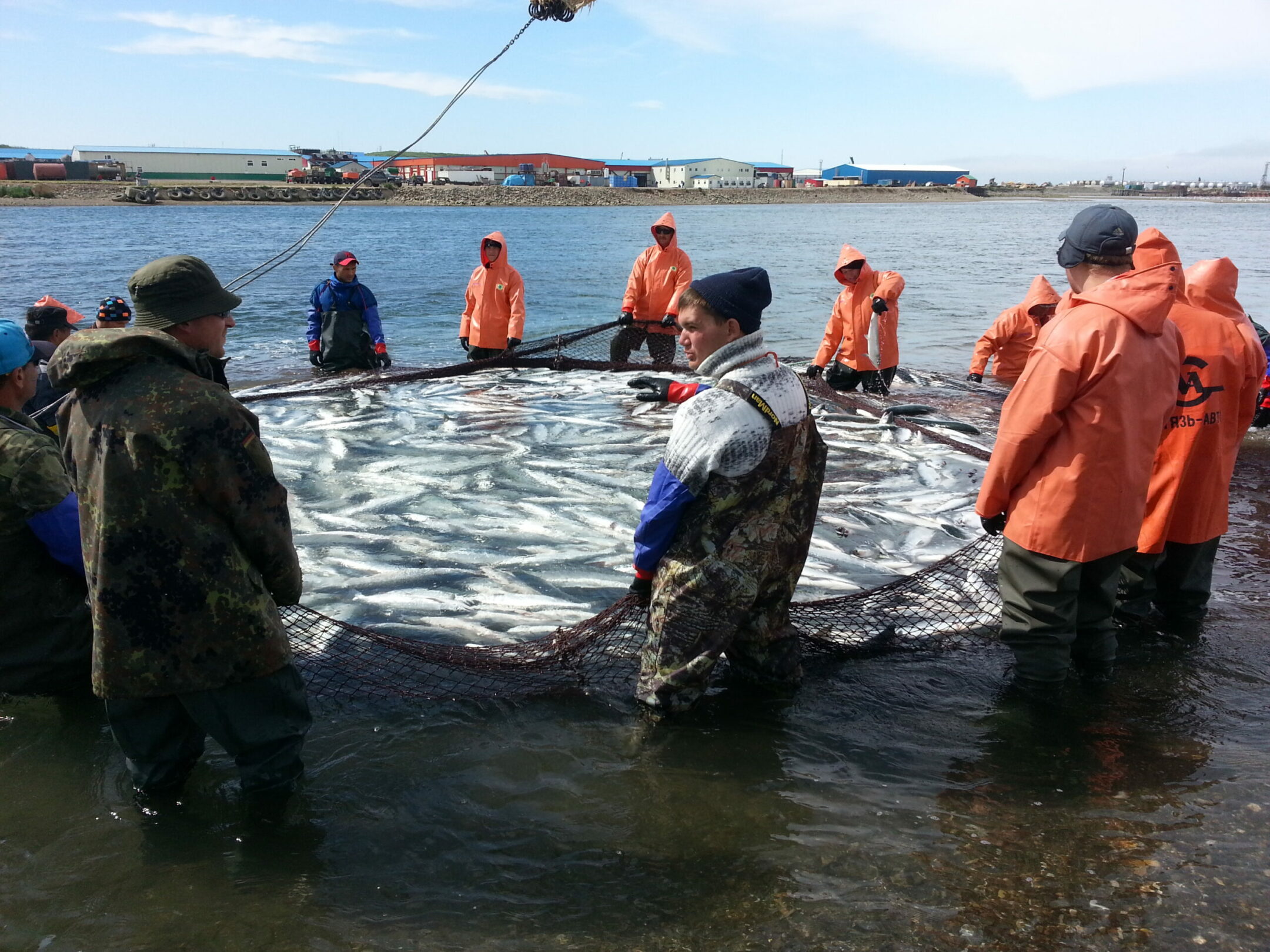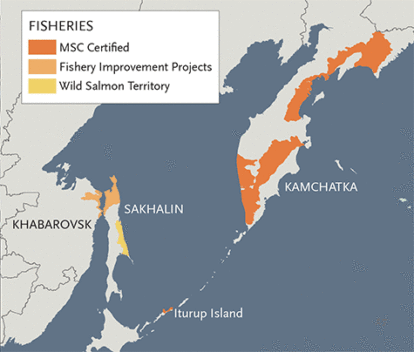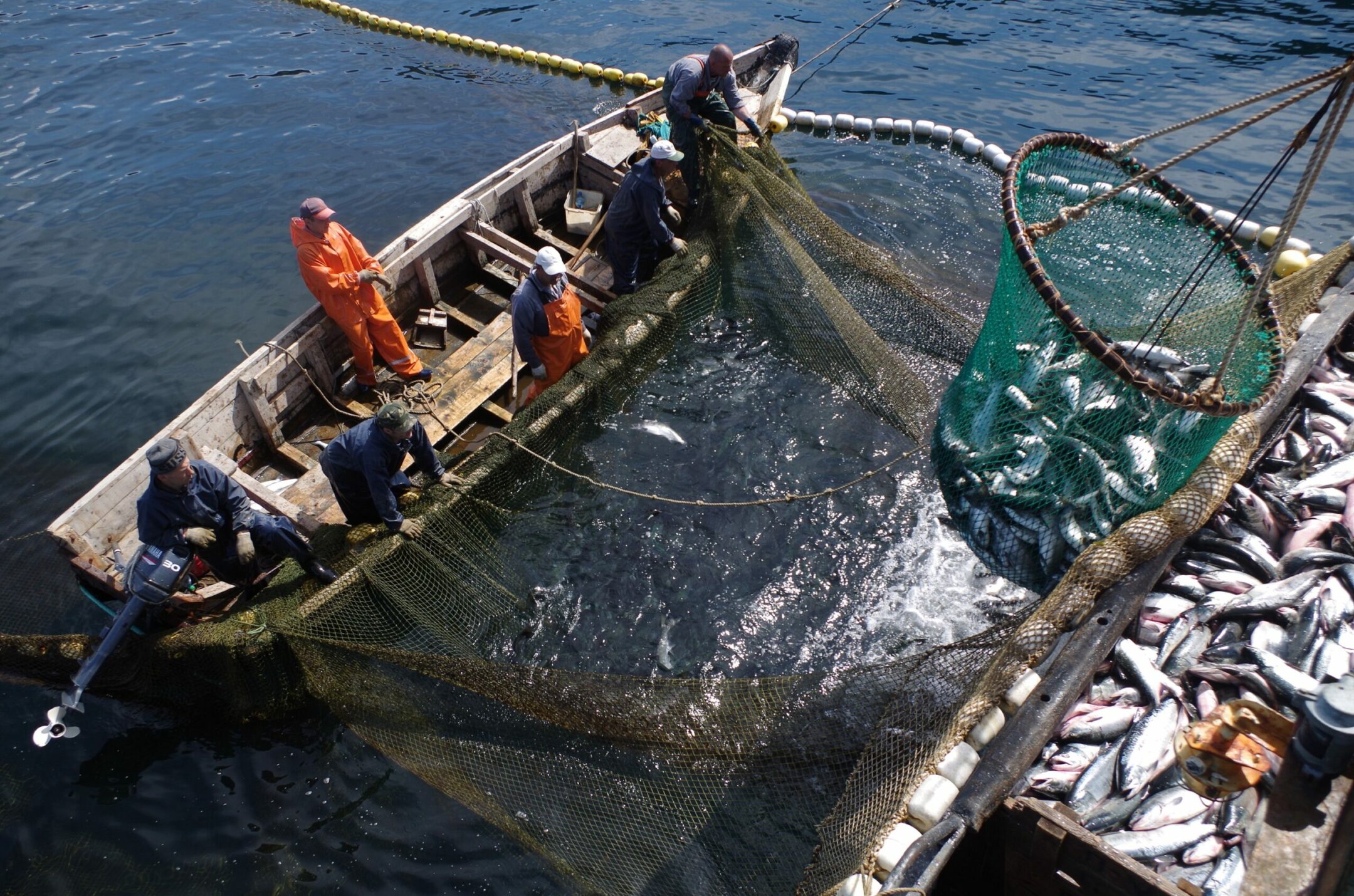For 25 years, WSC and our Russian partners have been building layers of protection for Kamchatka’s salmon fisheries. A new report shows that it’s working.
For more than 25 years, Wild Salmon Center and our partners have sought to protect the pristine wild salmon strongholds of Kamchatka.
When we started this work in the 1990s, poachers were nabbing about half of the vast peninsula’s returning salmon. Mining interests encroached on the banks of salmon rivers like the Kikhchik and Icha, once protected by Soviet laws that mandated wide riparian buffers along salmon rivers. Hatcheries were gaining a foothold.

“The whole of Kamchatka is essentially a wild salmon stronghold,” says WSC Western Pacific Program Director Mariusz Wroblewski. “But after the collapse of the Soviet Union, threats to these world-class runs were everywhere.”
In those days, the peninsula’s young commercial fishing industry was voracious and free-wheeling. Illegal, unregulated, and unreported salmon fishing, primarily for roe, comprised a large but unknown percentage of Kamchatka’s total harvest. This poaching took an economic and environmental toll on population centers like Petropavlovsk-Kamchatsky, fueling talk of expanding hatchery salmon production. It was clear to WSC and our Russian partners that without action, Kamchatka’s rich wild salmon systems could go the way of other former Pacific salmon strongholds, where runs were collapsing.
“We knew we needed a tool that could build sustainability and accountability into the machinery of Kamchatka’s commercial fishing industry,” Wroblewski says. “That tool turned out to be MSC certification.”
Marine Stewardship Council (MSC) is an international body that independently monitors the health of certain marine fisheries. MSC certification entails a formal process of chain-of-custody reporting, auditing, and scientific assessment of impacts on threatened and nontarget species. In return for compliance with these substantial certification requirements, fishers gain access to global markets for sustainably-certified seafood.
But for MSC certification to have a chance of making an impact in Kamchatka, WSC first needed to convince local commercial fishers to participate.

“The groundbreaking moment was 2008,” says Wroblewski. In that year, WSC staff connected with two sockeye fisheries on the Ozernaya River that expressed a willingness to invest in MSC certification—an expensive and time-consuming process. It was a process that WSC helped the fisheries work through.
“It took time for other fisheries to see the benefits,” Wroblewski says. “Slowly but surely, more and more fisheries got on board, and agreed to the process.”
Over time, WSC’s sustainable fisheries strategy for Kamchatka was advanced by partners Ocean Outcomes, which Wild Salmon Center launched in 2015, and, later, ForSea Solutions. Fast forward to 2021, and this strategy is flourishing.

According to a new internal report from ForSea Solutions, as of 2020 nearly 70 percent of Kamchatka salmon fisheries by volume are now either MSC-certified (with annual third-party audits) or engaged in a pre-certification process. Meanwhile, conversation has stalled on increasing the peninsula’s hatchery production; the number of hatcheries in Kamchatka has actually shrunk, bucking trends elsewhere in Russia.
“There have been some incredible successes in the ongoing efforts to ensure the sustainability of Kamchatka’s commercial salmon fisheries,” says ForSea Solutions Founder and President Natasha Novikova.
While poaching and illegal harvest are still chronic problems in the Russian Far East, Novikova’s team finds that Kamchatka fishing companies’ increased protection of spawning streams, coupled with enhanced management and tighter regulations from federal agencies, have helped to significantly reduce poaching in these fisheries.
“Turning the ship in the Russian Far East has been a decades-long project,” says Wroblewski. “But we have proof of concept that our long-term focus on Kamchatka can achieve important results for wild salmon. We can now state without doubt that market incentives in fisheries can lead to real conservation outcomes.”
Turning the ship in the Russian Far East has been a decades-long project. We now can state without doubt that market incentives in fisheries can lead to real conservation outcomes.
Hero Image
